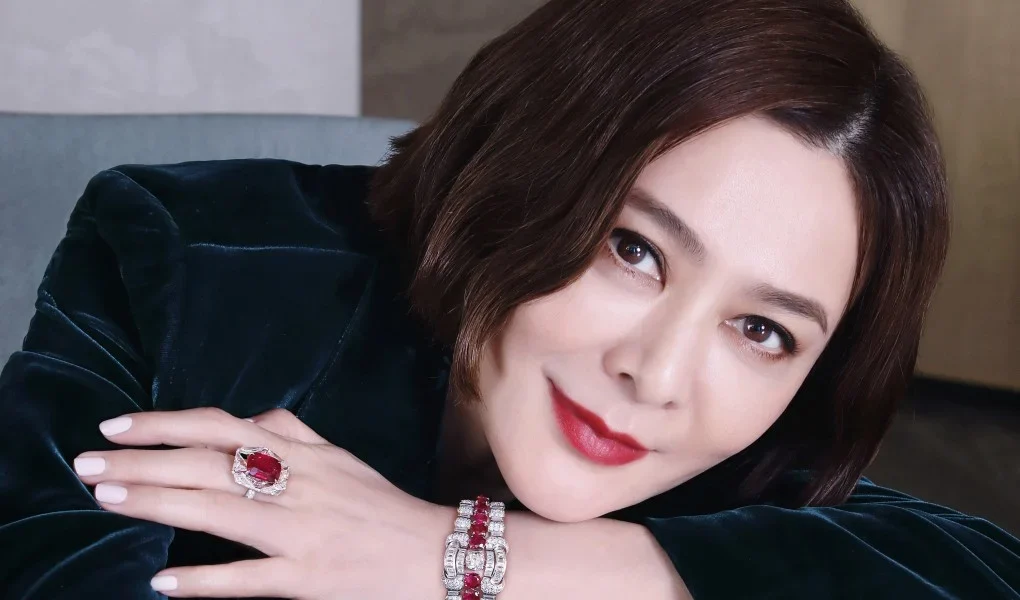kimzolciakwedding.com – Rosamund Kwan Chi-lam was born on September 24, 1962, in Hong Kong, into a family with a rich cultural heritage. Her father, Kwan Shan, was a well-known actor, and her mother, Liu Hsiu-yao, was a former actress as well. Growing up in a household deeply connected to the entertainment industry, it was no surprise that Rosamund Kwan would eventually pursue a career in the world of acting.
Rosamund was educated in Hong Kong and later attended school in the United States, which helped her develop a fluent command of both Cantonese and English. From a young age, Rosamund was exposed to a variety of art forms, particularly film, as she grew up surrounded by the glamour and creativity of Hong Kong cinema. Her exposure to the industry through her father and his colleagues provided the foundation for her eventual career as an actress.
Despite her family’s background in entertainment, Rosamund initially studied fine arts in the United States and briefly considered a career outside of acting. However, her fate led her back to the film industry, where she would become one of the most beloved and respected actresses in Hong Kong cinema.
Entry Into the Entertainment Industry
Early Beginnings: From Modelling to Acting
Rosamund Kwan’s journey to stardom began in the early 1980s when she transitioned from modeling to acting. Her striking beauty, tall stature, and graceful demeanor caught the attention of directors and producers, eventually leading her to sign a contract with Shaw Brothers Studio, one of the most influential production companies in Hong Kong. Rosamund’s initial roles in television and film were minor, but they gave her an opportunity to gain experience and build her name.
Her breakthrough came in 1984, when she was cast in the film “The Dream of the Red Chamber,” which was adapted from the famous Chinese literary classic of the same name. Her portrayal of Lin Daiyu, a character known for her tragic beauty and emotional complexity, garnered significant attention and established Rosamund as a rising star in Hong Kong cinema. The film’s success gave Rosamund a platform to display her acting chops and showcased her versatility as an actress who could tackle complex, nuanced roles.
After this, Rosamund Kwan quickly became one of the most sought-after actresses in Hong Kong. Her talent and beauty led her to star in a wide range of films, and her status as a prominent figure in the Hong Kong entertainment industry was solidified.
The Peak of Her Career: Iconic Roles and Contributions to Hong Kong Cinema
Breakthrough in Martial Arts Films
Rosamund Kwan’s career took a decisive turn when she was cast in a leading role in “A Better Tomorrow II” (1987), directed by John Woo. The film, part of the famous “A Better Tomorrow” series, was a massive commercial success and brought her into the limelight. Her role as Kong displayed her ability to adapt to various genres and confirmed her place in Hong Kong’s rapidly growing action movie industry.
In the late 1980s and early 1990s, Rosamund Kwan was recognized for her involvement in the burgeoning martial arts film industry. She became particularly famous for her performances in “Once Upon a Time in China” (1991), in which she starred opposite Jet Li. This film, directed by Tsui Hark, was a historical martial arts epic about the legendary Wong Fei-hung, and Rosamund’s role as Cheng Choi-sun, a strong and independent woman, helped further establish her as one of Hong Kong’s most beloved actresses. The “Once Upon a Time in China” series, which featured multiple sequels, showcased Rosamund’s ability to combine both action and dramatic roles, making her one of the top stars in the genre.
Her performances in other martial arts and action films, such as “The Butterfly and the Sword” (1993) and “Drunken Master II” (1994), cemented her place as an iconic leading lady in Hong Kong cinema. Rosamund’s beauty, grace, and commanding screen presence made her a fan favorite, while her ability to play strong, complex female characters allowed her to distinguish herself in a field that was often dominated by male action heroes.
Romantic and Dramatic Roles
While Rosamund Kwan is perhaps best known for her roles in martial arts films, her versatility allowed her to excel in a wide variety of genres. In the 1990s, she became a sought-after actress in romantic dramas and comedies. One of her most significant romantic roles was in “The Eagle Shooting Heroes” (1993), a parody of martial arts films. Her portrayal of the female lead showcased her ability to balance humor, romance, and drama.
Another important film in her career was “Red Rose White Rose” (1994), directed by Ann Hui, in which she played Shu Fang, a woman navigating her complex relationship with two very different men. The film earned her critical acclaim for her nuanced and emotional performance, further establishing her as a well-rounded actress capable of handling more serious material.
Despite her success in romantic and dramatic roles, it was clear that Rosamund Kwan’s enduring appeal stemmed from her ability to transcend the roles she played. Whether portraying a fierce warrior in “Once Upon a Time in China” or a heartbroken lover in a romantic drama, she was always able to bring her characters to life in a deeply compelling way.
Transition to Other Roles and Personal Life
A Shift Toward More Diverse Roles
By the late 1990s and early 2000s, Rosamund Kwan began to explore more varied and complex roles, stepping away from the martial arts genre and diversifying her career further. She starred in “The Silent War” (2012), a critically acclaimed film about espionage and the Chinese resistance during World War II. This film allowed Rosamund to explore more dramatic and intense material, and her performance was well received by both critics and audiences.
In the early 2000s, Rosamund also worked in television and produced her own projects, as her growing interest in the industry led her to explore other aspects of film and television production. Despite stepping back from acting in recent years, she remained an influential figure in Hong Kong cinema, offering her expertise and support to younger filmmakers and performers.
A Private Life Away From the Spotlight
Throughout her career, Rosamund Kwan was known for her discretion when it came to her personal life. While she was in the public eye for much of her career, she was often quite private about her relationships, her family, and her personal affairs. This air of mystery only added to her appeal, as fans and the media alike admired her elegance and professionalism both on and off the screen.
In terms of her relationships, Rosamund has been involved in a number of high-profile relationships over the years, but she has always been careful not to let her private life overshadow her career. As a result, she remains one of the most respected and admired actresses in the Hong Kong entertainment industry.
Contributions to the Industry
Rosamund Kwan’s influence extends beyond just her acting roles. As an experienced professional in the industry, she has supported various charitable causes and been involved in numerous humanitarian efforts. She has used her fame to support a variety of initiatives, particularly those that focus on children’s education and well-being. Her dedication to causes close to her heart has helped solidify her reputation as a thoughtful and compassionate figure in the Hong Kong entertainment community.
The Legacy of Rosamund Kwan
A Timeless Icon
Rosamund Kwan’s contribution to Hong Kong cinema is unparalleled. Her diverse filmography, which spans multiple genres and decades, has made her one of the most versatile and enduring stars in the industry. Whether she was starring in high-octane action films, historical epics, romantic dramas, or comedies, she consistently brought depth, intelligence, and grace to her roles.
Her portrayal of powerful, multi-dimensional female characters has had a lasting impact on Hong Kong cinema. She became a role model for women in the industry, showing that female characters can be both strong and vulnerable, independent and loving, fierce and compassionate. She redefined the image of the modern woman in Hong Kong film, and her contributions paved the way for other actresses to explore a broader range of roles.
Rosamund’s enduring popularity is also a testament to her on-screen charisma. Even though she hasn’t acted in recent years, her influence continues to resonate with both fans and young actors alike. Her legacy remains integral to Hong Kong’s golden age of cinema, and she is fondly remembered as one of the greatest actresses of her generation.
Conclusion
Rosamund Kwan’s journey through the world of cinema is one of immense success and lasting influence. From her early roles in martial arts films to her later work in romantic dramas and historical epics, she became a defining figure in Hong Kong’s entertainment industry. Her versatility, elegance, and strong on-screen presence made her a fan favorite and a celebrated icon in the global film community.
Today, Rosamund’s legacy remains untarnished, and her contributions to Hong Kong cinema continue to inspire new generations of filmmakers and actors. Her impact on the industry, combined with her dedication to her craft and her philanthropy, ensures that she will forever be remembered as one of the finest talents to ever grace the silver screen.



